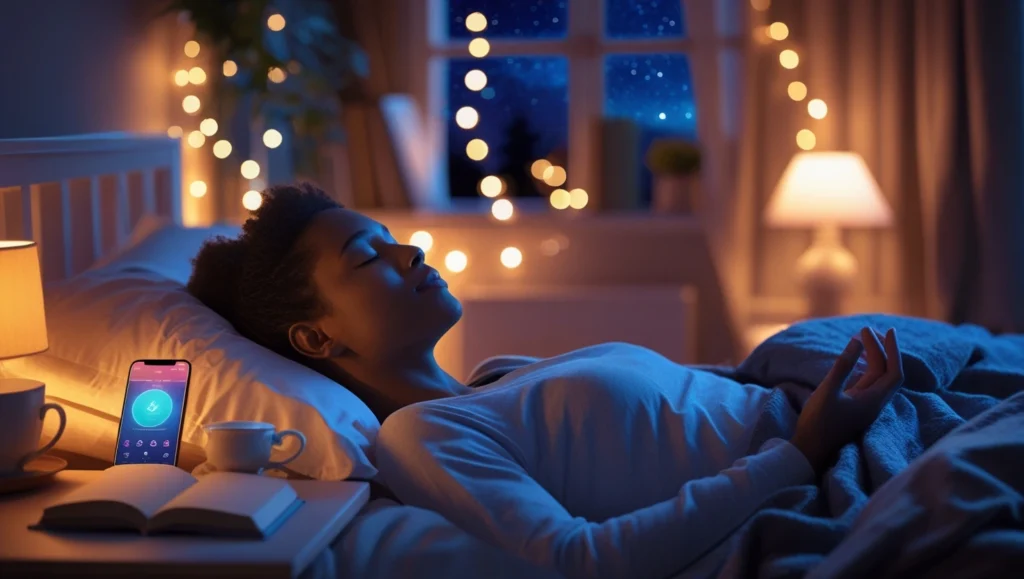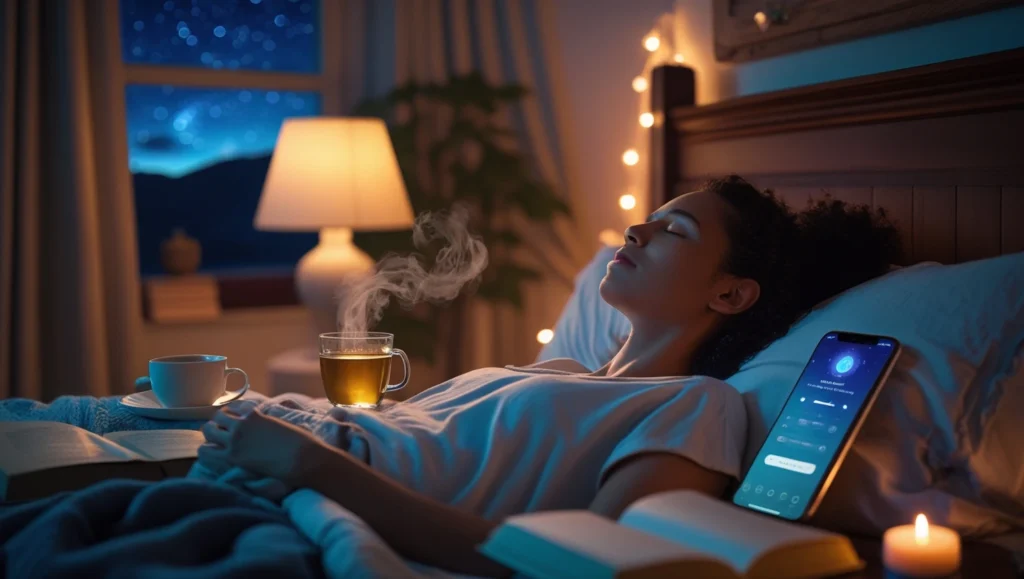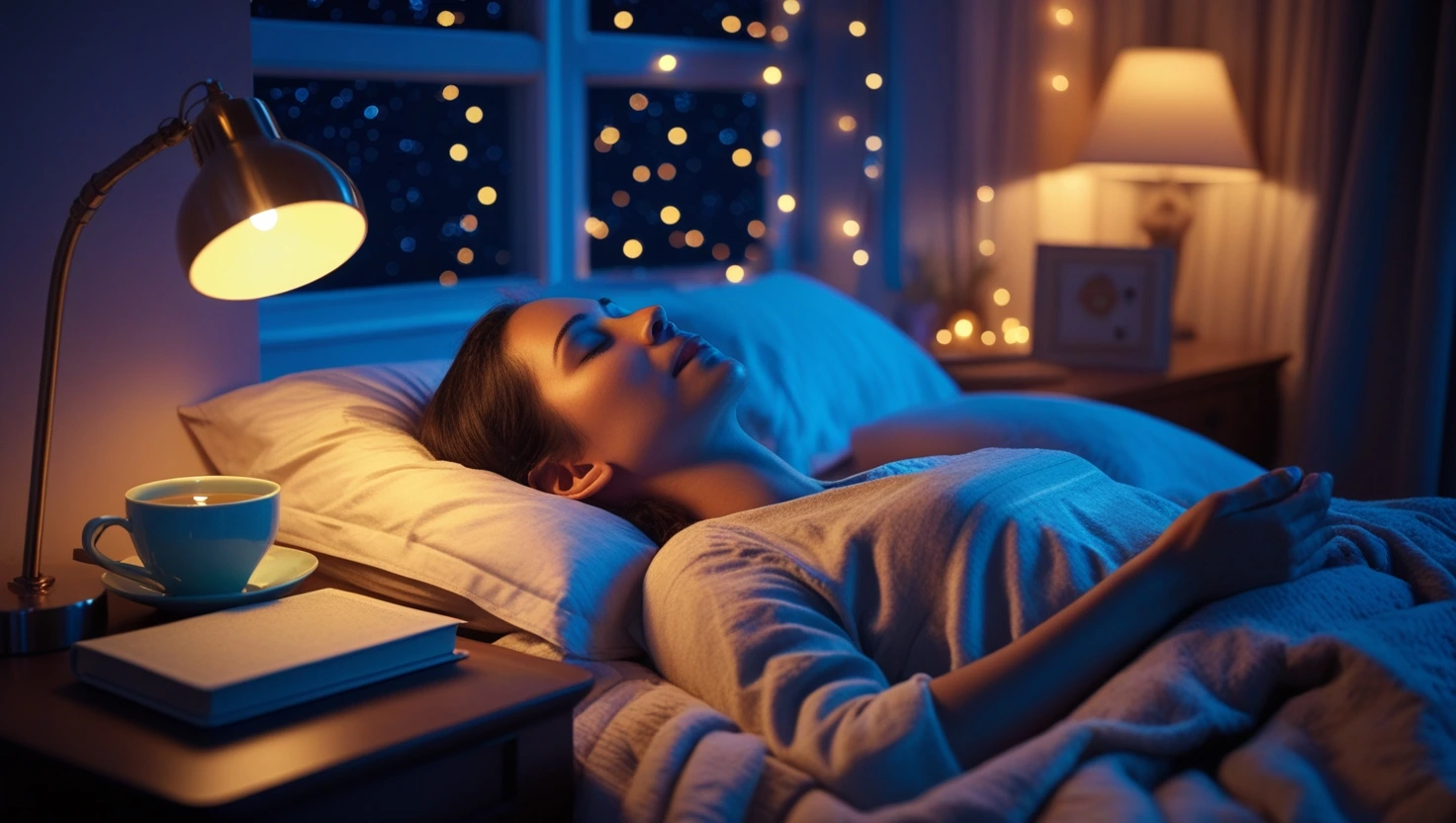Nighttime anxiety can make falling asleep feel impossible, leaving you exhausted and overwhelmed. If racing thoughts, restlessness, or panic keep you awake, try these 11 science-backed strategies to calm your mind and improve sleep.
1. Create a Relaxing Bedtime Routine
A consistent wind-down routine signals your brain that it’s time to rest. Try:
- Reading a book (fiction or light nonfiction)
- Gentle stretching or yoga (avoid intense exercise)
- Listening to calming music or nature sounds
Avoid stimulating activities like scrolling on your phone or watching stressful content.
2. Practice Deep Breathing (4-7-8 Method)
Slow, controlled breathing activates the parasympathetic nervous system, reducing anxiety.
How to do it:
- Inhale deeply for 4 seconds
- Hold your breath for 7 seconds
- Exhale slowly for 8 seconds
Repeat 4-5 times until you feel calmer.

3. Write Down Worries in a Journal
Anxious thoughts often spiral at night because your mind tries to “solve” problems.
- Keep a notebook by your bed and jot down worries before sleep.
- Try the “brain dump” method—write everything on your mind without filtering.
This helps “offload” thoughts so your brain can relax.
4. Limit Caffeine & Alcohol Before Bed
- Caffeine (coffee, tea, soda) stays in your system for 6+ hours, increasing restlessness.
- Alcohol disrupts sleep cycles, leading to middle-of-the-night wake-ups.
Avoid caffeine after 2 PM and limit alcohol close to bedtime.
5. Try Progressive Muscle Relaxation (PMR)
PMR reduces physical tension, which can ease anxiety.
How to do it:
- Tense each muscle group (feet, legs, hands, arms, etc.) for 5 seconds.
- Release and notice the difference.
- Move up your body until you feel relaxed.

6. Use a Weighted Blanket
Weighted blankets (10% of your body weight) provide deep pressure stimulation, which can lower cortisol (stress hormone) and increase serotonin (calming hormone).
7. Listen to Sleep Meditations or ASMR
Guided sleep meditations (try Insight Timer, Calm, or Headspace) or ASMR (soft whispering, tapping sounds) can distract anxious thoughts.
8. Keep Your Bedroom Cool & Dark
- Ideal sleep temperature: 60-67°F (15-19°C)
- Use blackout curtains to block light
- Try a white noise machine to mask disruptive sounds
9. Avoid Clock-Watching
Checking the time repeatedly increases sleep-related anxiety.
- Turn your clock away from view.
- If you can’t sleep after 20 minutes, get up and do something relaxing (reading, light stretching).
10. Consider Magnesium or Herbal Tea
- Magnesium glycinate may help relax muscles and nerves.
- Chamomile, valerian root, or passionflower tea have mild sedative effects.
(Check with a doctor before taking supplements.)
11. Talk to a Therapist if Anxiety Persists
If nighttime anxiety is frequent and severe, CBT (Cognitive Behavioral Therapy) or anxiety medication (under medical supervision) may help.







